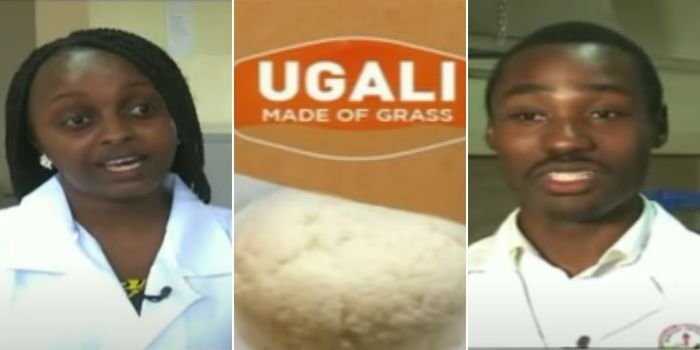A group of innovative students from Kabarak University has developed a groundbreaking solution to address food insecurity in Kenya. Led by Faith Wandia, a Master’s student in Business Administration, the team has successfully created ugali flour from grass—a revolutionary innovation that could transform food production, particularly in drought-prone areas.
The idea was born out of Wandia’s desire to find a solution to the ongoing hunger crisis in Kenya, where many people struggle to access affordable food. Her goal was to convert cellulose, a component found in grass, into edible starch that could be used to make staple foods like ugali.
In 2020, Wandia assembled a talented team to bring her vision to life. The team included Innocent Bahati (Clinical Medicine), Salome Njeri (Economics), and Edgar Ruto (Computer Science). Together, they chose grass as their raw material due to its widespread availability and low cost. They use Bermuda and Ryegrass, which grow quickly and can be harvested within two to three months.
The process begins with harvesting the grass, which is then dried and crushed into powder. As Bahati explained, a scientific method is needed to make the grass edible. Since humans cannot naturally digest cellulose, the team adds water and enzymes to convert the cellulose into amylose, a starch that resembles the one found in maize.
After this process, the powder loses its green color and turns white, taking on a texture and scent similar to maize flour. To ensure the product is safe, the team conducts an iodine test to confirm the presence of starch.
Once ready for commercialization, the grass-based ugali flour will be sold at an affordable price of Ksh 35 per kilo, with production costs at Ksh 23 per kilo. This price point could provide a viable alternative for families struggling with rising food costs.
The team has already filed a patent for their invention with the Kenya Industrial Property Institute, though they are awaiting approval from medical experts and the Kenya Bureau of Standards (KEBS) before the product can be made available to the public. This innovation has the potential to make a significant impact on food security in Kenya, offering a sustainable and affordable solution to hunger.



